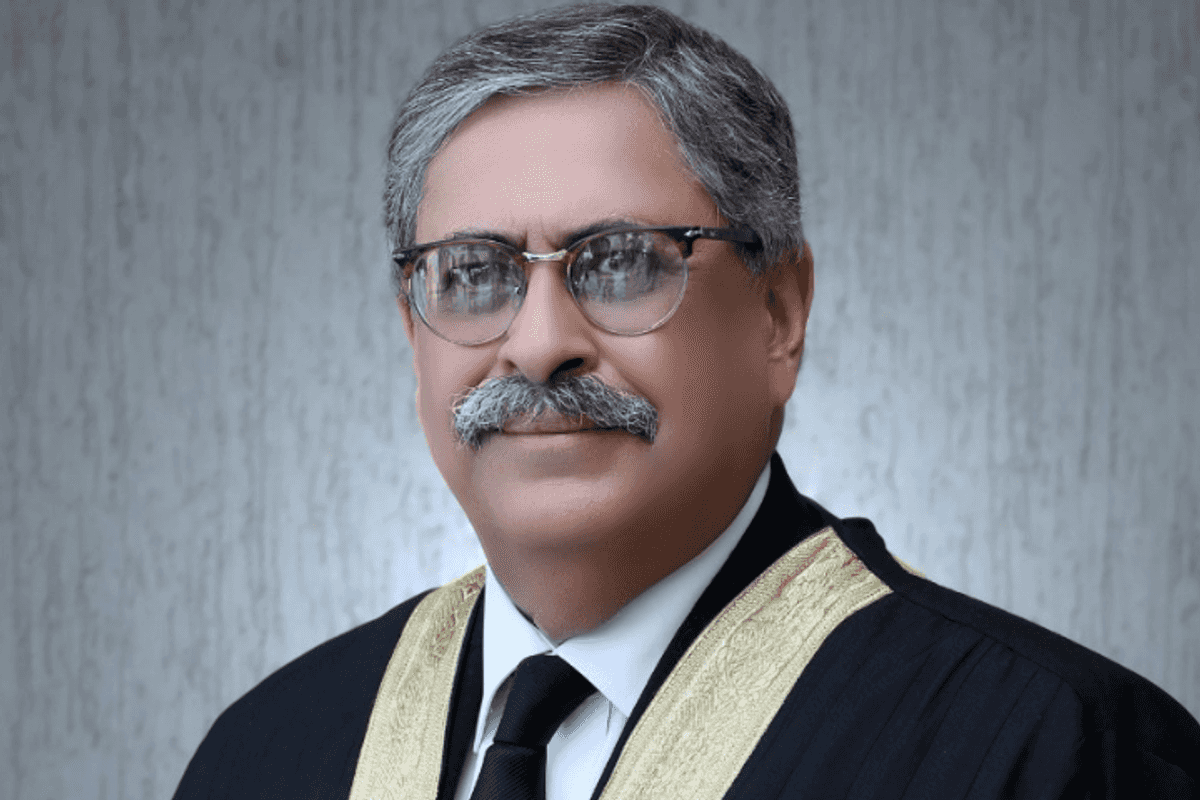Calls for Pakistan chief justice to take action against 27th Constitutional Amendment grow
Justice Athar Minallah writes strongly worded letter to CJP Yahya Afridi, urges him to convene Judicial Conference over alarming proposed amendment

Aamir Abbasi
Editor, Islamabad
Aamir; a journalist with 15 years of experience, working in Newspaper, TV and Digital Media. Worked in Field, covered Big Legal Constitutional and Political Events in Pakistan since 2009 with Pakistan’s Top Media Organizations. Graduate of Quaid I Azam University Islamabad.

A senior judge of Pakistan’s Supreme Court urged the country’s top judge on Tuesday to convene a high-level Judicial Conference over the controversial 27th Constitutional Amendment, warning that the courts were facing a serious credibility crisis at a moment of major political and constitutional change.
Justice Athar Minallah wrote a strongly worded letter to Chief Justice of Pakistan Yahya Afridi expressing alarm over the proposed amendment.
The amendment is being seen by critics as a major restructuring of Pakistan’s judicial system.
Pakistan has faced repeated political turmoil in recent years, with courts playing central roles in cases involving prime ministers, political leaders, and military influence. The judiciary is widely viewed as one of the most powerful institutions in the country, but also one of the most contested.
Justice Minallah said the judiciary must confront its own past mistakes to regain public trust. “Our oath demands that we defend the public’s trust in the judiciary,” he wrote.
He said key truths about judicial misconduct remain hidden “in our tea rooms and chambers,” adding that internal actions have undermined the courts more than external interference. He pointed to a recent Islamabad High Court incident as a clear example of institutional harm coming from within.
Rare rebuke
Minallah also issued a rare rebuke of the judiciary’s role in major historical cases. He said it took the Supreme Court 40 years to acknowledge that the 1979 execution of former Prime Minister Zulfikar Ali Bhutto — still one of Pakistan’s most divisive events — was a judicial murder. He called it a “historic and unforgivable judicial crime.”
He referenced the treatment of other key political figures, including former prime ministers Benazir Bhutto and Nawaz Sharif, and their family members. He said the handling of cases involving the founder of the Pakistan Tehreek-e-Insaf Imran Khan followed the same pattern of judicial support for “powerful” forces.
Minallah cited the banning of the left-leaning National Awami Party in the 1970s as another example of courts being used to silence popular will. “The purpose of invoking the past is not to condemn, but to remind that the judiciary has often stood with those who crushed the will of the people,” he wrote.
He warned that public confidence has collapsed and can only be restored through “collective introspection and reform.”
The 27th Constitutional Amendment has triggered heated debate because it reportedly aims to redistribute judicial powers and create a new Federal Constitutional Court. Legal experts and bar associations argue it could weaken the Supreme Court and allow the executive branch greater control in judicial appointments and case allocation.
Justice Minallah said the Supreme Court should reclaim its moral authority through transparent debate, urging CJ Afridi to gather judges nationwide for a Judicial Conference to address the amendment and the broader mistrust in the system.
“We must not wait for others to hold us accountable,” he wrote. “The judiciary must have the courage to confront its own past if it wishes to protect its future.”
Justice Mansoor also challenges amendment
Justice Minallah's letter came only a day after another senior judge, Justice Mansoor Ali Shah, sent a separate letter to the chief justice raising questions about the legality and timing of the amendment.
Justice Shah said the reform should not proceed while the 26th Amendment remains unresolved before the court. He urged the chief justice to engage the government directly and make clear that constitutional changes affecting the judiciary require proper consultation with sitting judges.
Shah challenged the decision to create a new constitutional court, noting that major democracies — including the United States, the United Kingdom, Canada, Australia, and Japan — operate effectively with a single supreme court.
He said the argument that the new court would reduce case backlogs was inaccurate because most delays occur in Pakistan’s lower district courts.
He also pointed out that the idea of a constitutional court was originally proposed in Pakistan’s Charter of Democracy, only for a limited six-year term and in a very specific political context.
Shah called on Chief Justice Afridi to demonstrate leadership, saying the judiciary must protect its institutional independence during what he described as “a critical moment.”







Comments
See what people are discussing